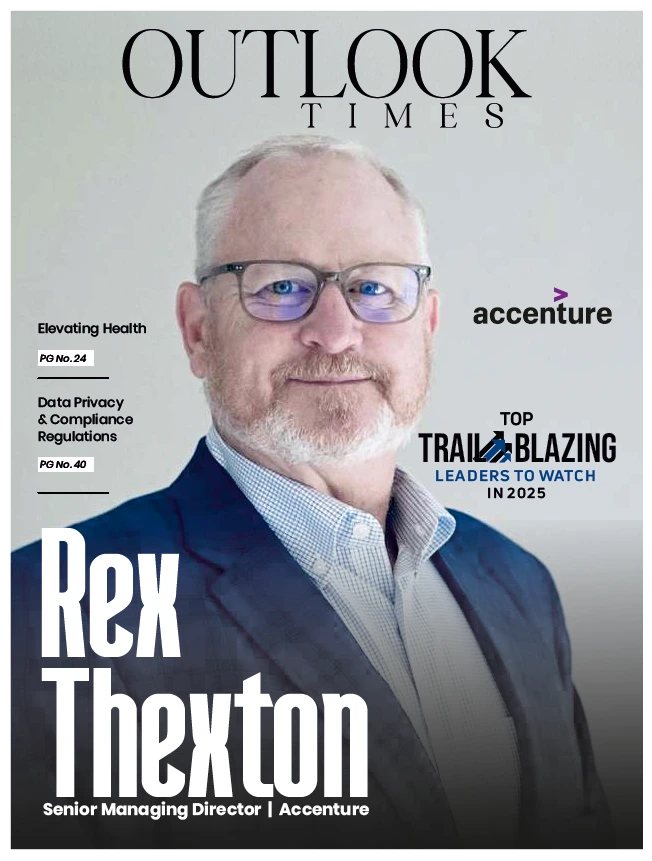Ignacio Bonasa – Founder and Executive President of Liderarte Global...
Read MoreBlockchain Beyond Cryptocurrency: Transforming Business and Governance

Blockchain technology, once synonymous with cryptocurrency, is now recognized for its transformative potential across various sectors. Its decentralized, transparent, and secure nature makes it an ideal solution for numerous business and governance challenges. This article explores how blockchain is revolutionizing industries beyond cryptocurrency, highlighting its applications, benefits, and future prospects.
Understanding Blockchain Technology
At its core, blockchain is a distributed ledger technology that records transactions across multiple computers in a way that ensures the security and transparency of data. Each transaction, or “block,” is linked to the previous one, forming a “chain.” This decentralized structure eliminates the need for intermediaries, reducing costs and increasing efficiency.
Blockchain in Business
Supply Chain Management
Blockchain is redefining supply chain management by providing real-time visibility and traceability. Companies can track products from origin to destination, ensuring authenticity and preventing fraud. For instance, Walmart uses blockchain to trace the origin of its produce, reducing the time taken to track items from days to seconds. This transparency improves efficiency and builds consumer trust.
Smart Contracts
Smart contracts are self-executing contracts with the terms directly written into code. They automatically enforce and execute the terms of an agreement when predetermined conditions are met. This innovation reduces the need for intermediaries, cuts down on legal costs, and accelerates transaction times. Industries such as real estate and insurance are leveraging smart contracts to streamline operations and enhance security.
Financial Services
Beyond cryptocurrencies, blockchain is transforming traditional financial services. It facilitates cross-border payments, reduces transaction fees, and speeds up settlement times. Ripple, for example, uses blockchain to enable instant, secure, and low-cost international payments. Blockchain’s potential to enhance transparency and security is driving its adoption in various financial applications, including trade finance and identity verification.
Blockchain in Governance
Voting Systems
Blockchain technology is poised to revolutionize voting systems by ensuring transparency, security, and integrity. It can prevent fraud, provide an immutable record of votes, and enable real-time results. Estonia is a pioneer in this regard, having implemented blockchain-based e-voting systems that enhance electoral transparency and trust.
Public Records
Managing public records, such as land registries and birth certificates, is a complex and often cumbersome process. Blockchain offers a solution by providing a tamper-proof, transparent, and easily accessible record-keeping system. The Republic of Georgia, for instance, uses blockchain to secure land titles, reducing fraud and improving efficiency in property transactions.
Identity Management
Blockchain technology can transform identity management by providing a secure and immutable digital identity. This application has far-reaching implications for both governments and individuals, enabling secure access to services and reducing identity fraud. The United Nations has explored blockchain-based identity solutions to provide legal identities for refugees, improving access to essential services.
Benefits of Blockchain
Transparency and Immutability
Blockchain’s transparent nature ensures that all participants have access to the same information, fostering trust and accountability. Its immutability guarantees that once data is recorded, it cannot be altered, preventing fraud and ensuring data integrity.
Security
Blockchain uses advanced cryptographic techniques to secure data, making it highly resistant to hacking and unauthorized access. This security is particularly valuable in industries handling sensitive information, such as finance and healthcare.
Efficiency and Cost Reduction
By eliminating intermediaries and automating processes through smart contracts, blockchain reduces operational costs and increases efficiency. Transactions are faster and more cost-effective, benefiting businesses and consumers alike.
Challenges and Future Prospects
Despite its potential, blockchain faces several challenges, including scalability, regulatory hurdles, and energy consumption. Scalability issues arise due to the high computational power required to process transactions, which can lead to slower transaction times. Regulatory uncertainty also poses a challenge, as governments and institutions grapple with how to integrate blockchain within existing legal frameworks. Additionally, the energy-intensive nature of some blockchain networks raises environmental concerns.
However, ongoing research and development are addressing these challenges. Innovations such as sharding, which divides the blockchain into smaller, more manageable pieces, are improving scalability. Regulatory bodies worldwide are working towards creating frameworks that support blockchain innovation while ensuring compliance and security. Efforts are also underway to develop more energy-efficient consensus mechanisms, such as proof-of-stake, which reduce the environmental impact.
Blockchain technology is far more than the foundation of cryptocurrencies; it is a powerful tool with the potential to transform business and governance. From enhancing supply chain transparency to revolutionizing voting systems, its applications are vast and varied. As the technology evolves and overcomes current challenges, its adoption is likely to increase, driving innovation and efficiency across multiple sectors. Embracing blockchain’s potential can lead to more transparent, secure, and efficient systems, benefiting businesses, governments, and society as a whole.
Outlook Times
Explore the journeys of today’s most successful business leaders, uncovering the strategies, challenges, and triumphs that define their paths to success.
Trending
-
 Ignacio Bonasa
Ignacio Bonasa -
 Beyond AI Hype: The Next Wave of Technologies Reshaping 2025
Beyond AI Hype: The Next Wave of Technologies Reshaping 2025 -
 Are Hybrid Work Cultures Sustainable? The Truth Behind the 2025 Corporate Experiment
Are Hybrid Work Cultures Sustainable? The Truth Behind the 2025 Corporate Experiment -
 “When AI Directs the Camera: Will Sora 2 Rewrite the Future of Filmmaking?
“When AI Directs the Camera: Will Sora 2 Rewrite the Future of Filmmaking? -
 Top Trailblazing Leaders to Watch in 2025
Top Trailblazing Leaders to Watch in 2025 -
 Top 5 Power Profiles: Redefining Global Leadership in 2025
Top 5 Power Profiles: Redefining Global Leadership in 2025 -
 Icons of Impact: Legendary Leaders Shaping Success in 2025
Icons of Impact: Legendary Leaders Shaping Success in 2025 -
 Ronit Pinto
Ronit Pinto -
 Beyond Limits: How Alloy Is Redefining Fitness Franchising
Beyond Limits: How Alloy Is Redefining Fitness Franchising -
 Firdaus Nagree
Firdaus Nagree -
 The Most Promising Tech Innovation of the Future
The Most Promising Tech Innovation of the Future -
 AI Excellence in Business Process Management
AI Excellence in Business Process Management -
 Iconic Voice in Soulful Leadership & Cultural Impact – 2025
Iconic Voice in Soulful Leadership & Cultural Impact – 2025 -
 Visionary Leaders: The Most Trailblazing Personalities Shaping 2025
Visionary Leaders: The Most Trailblazing Personalities Shaping 2025 -
 The Power Players: Most Dynamic and Impactful Personalities to Follow in 2025
The Power Players: Most Dynamic and Impactful Personalities to Follow in 2025 -
 The Unshakable Pillar of Modern Healthcare, 2025
The Unshakable Pillar of Modern Healthcare, 2025 -
 Dr. Aidan Mouat
Dr. Aidan Mouat -
 Trailblazing Legend: Iconic Leader Who Inspire the World
Trailblazing Legend: Iconic Leader Who Inspire the World -
 Sukh Sandhu
Sukh Sandhu -
 Ctoday Awards : Leaders Awards 2024,Felicitated Top Companies & Individuals
Ctoday Awards : Leaders Awards 2024,Felicitated Top Companies & Individuals
Related articles
Beyond AI Hype: The Next Wave of
Beyond AI Hype: The Next Wave of Technologies Reshaping 2025...
Read MoreAre Hybrid Work Cultures Sustainable? The Truth
Are Hybrid Work Cultures Sustainable? The Truth Behind the 2025...
Read More“When AI Directs the Camera: Will Sora
When AI Directs the Camera: Will Sora 2 Rewrite the...
Read More